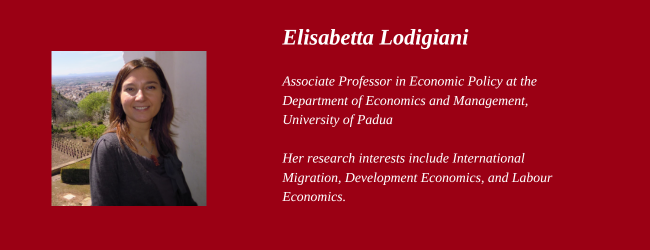For children’s sake: the effects of child abuse scandals on migration aspirations
Imagine if events in your home country made you worry about the safety and well-being of children. Would that make you consider moving elsewhere? This is the central question explored in the paper "For children’s sake: the effects of child abuse scandals on migration aspirations" by Elisabetta Lodigiani of University of Padova and her coauthor Annalisa Frigo of Bank of Italy, published in the Journal of Economic Geography.
They tried to answer this question in the context of child sex abuse scandals in the Catholic Church looking at four Latin American countries – Argentina, Brazil, Chile, and Mexico – between 2010 and 2015. During this period, there was increasing public awareness of child sex abuse scandals within the Catholic Church in these countries. The study found a link between the reporting of these scandals in a person's region and their aspiration to move permanently to another country. In simple terms, the more these scandals came to light in a particular area, the more people in that area expressed a desire to emigrate.
How does the impact of scandals vary across age groups?
The authors found that the impact of child abuse scandals on migration aspirations varies across different age groups. Interestingly, this effect was especially noticeable among young adults. The researchers suggest this might be because these individuals are either parents or thinking about becoming parents, and therefore are particularly sensitive to issues affecting children. The findings suggest that the scandals increase people's concerns about the well-being of children in their home country.
How does confidence in national institutions come into play?
The scandals appear to reduce individual confidence in important institutions such as religious organizations and national authorities. This erosion of trust and increased concern for child safety can then act as a reason for people to consider leaving their country in search of a better future.
In other words, these scandals seemed to have created a sense that something was wrong in the country more generally. When people lose trust in these important parts of society - such as local police, military, courts and justice system, and national government - it can make them think about moving to a place where they might feel more secure and have more confidence in the systems in place. The study suggests that this loss of trust was one of the reasons why some people, especially young adults, started to think more seriously about moving abroad.
How was the analysis performed?
The two scholars used two main data sources. The Gallup World Poll (GWP) individual-level survey data provided data on respondents' aspiration to move permanently to another country as well as their general intention to move and a range of personal and household characteristics for the selected countries and time period. The main analysis focused on individuals aged 25 to 64 years. As a second source of data, the study involved the compilation of a unique dataset of publicly reported child sex abuse scandals within the Catholic Church in the four Latin American countries.
A central element was the construction of an "exposure" variable for each respondent used to quantify the cumulative exposure to news of child abuse scandals up to their interview date, considering the number of new scandals reported in the three years preceding the interview, weighted by the distance between the respondent's region and the location of the scandal. The authors estimated the probability of aspiring to migrate permanently abroad based on exposure to these scandals, while accounting for individual and household factors to isolate the impact.
What are the implications of these findings?
These findings shed light on the relationship between child sex abuse scandals, perceptions of child well-being, trust in the community, and the size of potential migration flows.
The occurrence of such scandals in Catholic countries, drastically reduces confidence in - and attachment to - the local Catholic Church and its community. This erosion of trust lowers the non-monetary costs of emigration, inducing more individuals to aspire to move elsewhere in search of a better future.








